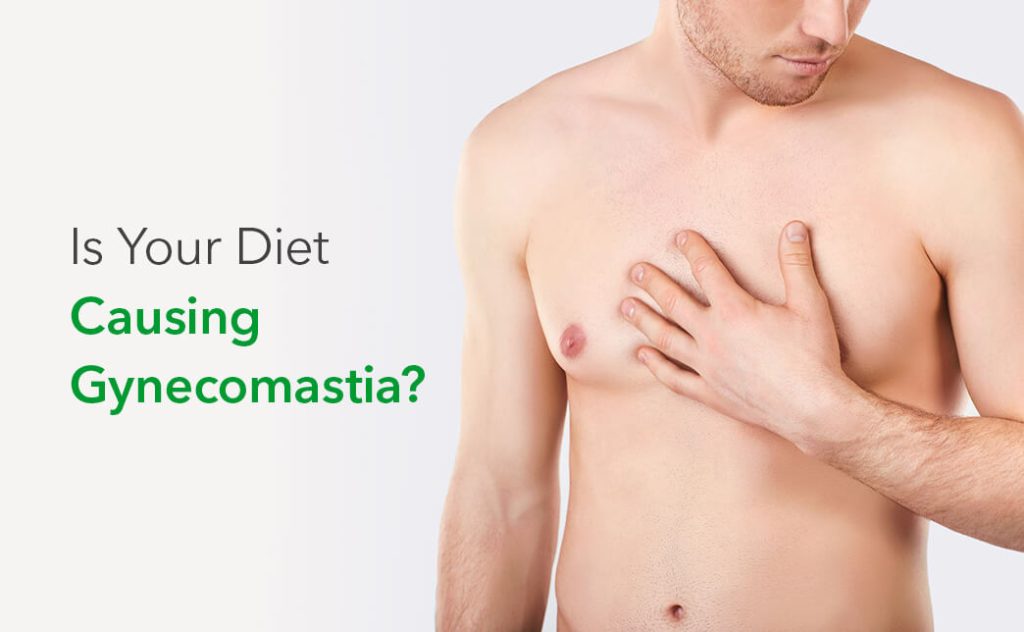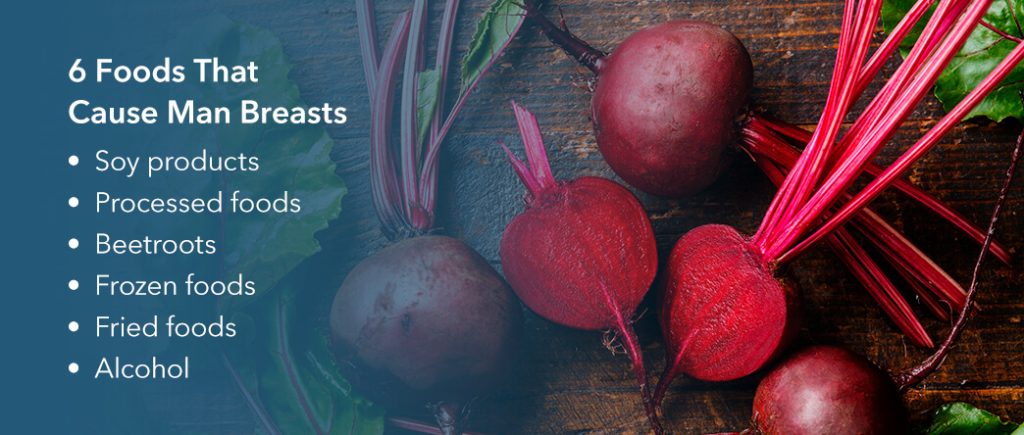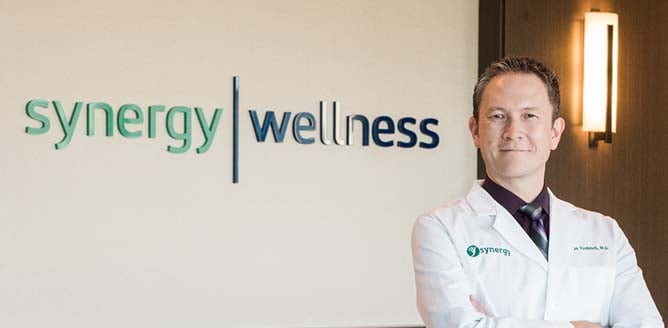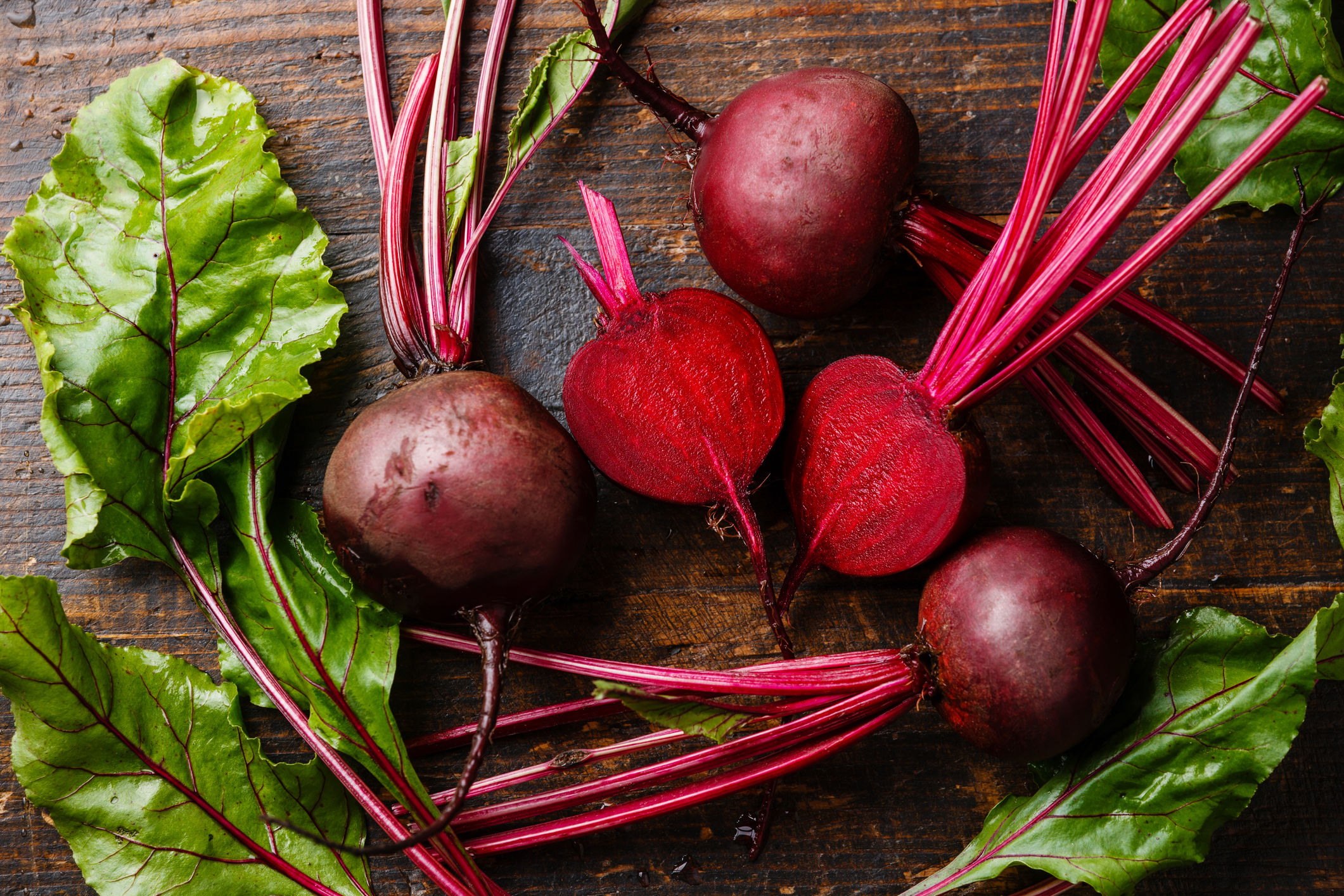
At any stage of your life, you may notice enlarged breast tissue, also known as gynecomastia. While this condition is usually medically benign, we understand developing breasts can be a sensitive topic for men. In some cases, gynecomastia can result from the dietary choices you make. Taking time to evaluate your nutrition and discover food to reduce gynecomastia can help guide you on a journey of boosted confidence and healthy eating.
Let’s explore the causes of gynecomastia and how you can eat delicious foods that reduce these symptoms.
What Is Gynecomastia?
Gynecomastia is a hormonal condition in males that causes the breast gland tissue to enlarge under the nipples. Fat and glandular tissue grow outside the chest muscles, resulting in sagging or swelling.
Luckily, gynecomastia is not a severe medical condition. However, its symptoms can range from nipple sensitivity to breast tenderness, impacting day-to-day activities. For many men, budding breasts can cause embarrassment. We understand this can be emotional and upsetting, but treatment is available to reduce breast growth.
A critical step in minimizing gynecomastia symptoms is to learn what causes this condition, so you can identify areas of your daily routine that might result in breast growth.
What Causes Man Boobs?
Enlarged breast gland tissue results from hormonal fluctuations as a newborn, during puberty or in later adulthood. Young boys and men with an imbalance of estrogen, testosterone and androgen will typically notice their breasts grow during these stages of life.
While everyone has estrogen and testosterone, men should have higher testosterone levels than estrogen. If a man’s body produces less testosterone and more estrogen, his breast gland tissue can grow. Men with equal or higher estrogen levels than testosterone will experience breast development, similar to what young women go through during adolescence.
Hormone changes are normal, and some men produce higher-than-average estrogen levels. Since men naturally have low estrogen, gynecomastia is a sign of this hormone increasing in your body.
In addition to a hormone imbalance causing enlarged breasts, your diet might be why you struggle with this condition.

6 Foods That Cause Man Breasts
Everyday foods for male breast growth can lead to weight gain, thus generating more fat buildup in glandular tissues. Knowing what foods cause man breasts can help you avoid them in your diet to reduce gynecomastia.
- Soy products: Soy is high in phytoestrogens, estrogen-like compounds found in plants. To shrink your chest, don’t eat soy products like tofu, soy milk and soybeans.
- Processed foods: Eating overly processed foods can lead to fat growth in the breasts because they typically have extra sodium, sugar, preservatives and calories.
- Beetroots: Beetroots contain high estrogen levels, which could cause your testosterone levels to decrease. Try to avoid this food to balance your hormones.
- Frozen foods: Saturated fats and preservatives in frozen foods can cause a significant hormone imbalance. Opting for fresh, whole foods is the best way to reduce male breast growth.
- Fried foods: Frying adds more calories to your favorite foods, causing more fat to accumulate in your breasts.
- Alcohol: Though it’s not a food, alcohol can impact male breast growth even more than the choices listed above. Alcohol prevents your liver from removing excess estrogen from your body, leading to a hormone imbalance.
7 Foods That Can Help Reduce Gynecomastia
If it seems challenging to make the necessary dietary changes to reduce gynecomastia, don’t worry. There are plenty of delicious and healthy things to include in your breakfast, lunch, dinner and snacks for reduced breast growth. Some ingredients are so simple that you may not even realize you’re eating them until you notice their benefits in your chest area.
Try to add the following ingredients and foods to your diet that reduce gynecomastia:
- Whole fruits
- Vitamin D-rich foods
- Vitamin E-rich foods
- Anti-inflammatory foods
- Milk thistle
- Fish oil
- Zinc-based foods
Other Ways to Get Rid of Man Boobs
You can reduce gynecomastia symptoms and balance your hormone levels by adding a few simple steps to your daily routine, including prioritizing self-care and eating a healthy diet to make you feel better and build your self-esteem.
You can make these straightforward lifestyle changes to improve your hormone levels and reduce gynecomastia symptoms.
- Prioritize your sleep schedule: There’s nothing a good night’s rest won’t fix, including the hormonal imbalances that cause gynecomastia. While you sleep, your body repairs and restores itself. You can reduce your gynecomastia symptoms by prioritizing a healthy sleep schedule to regulate hormone production levels. Try melatonin, sleep masks, white-noise machines or any other tactic to ensure you get enough rest each night.
- Relieve your stress levels: Everyone experiences and copes with stress differently. No matter what factors might represent stressors in your day-to-day life, addressing them will help you avoid a hormone imbalance. Estrogen levels can spike with increased stress. Meditating, yoga, journaling and unwinding after a long day are excellent ways to improve relaxation. Self-care is vital to a stress-free lifestyle.
- Check on your gut health: Though digestive issues typically do not directly cause gynecomastia, they can lead to hormone imbalances. A healthy gut is a sign of balanced estrogen levels. Prioritizing a nutritious diet can improve the beneficial bacteria lining in intestinal walls, which also helps regulate testosterone and estrogen in your body. If you regularly experience common digestive issues, ask your doctor what you can do to improve your gut health and minimize your chances of gynecomastia.
- Cosmetic surgery: The quickest way to resolve gynecomastia and attain a more masculine chest contour is to invest in male breast reduction surgery. Removing fat and tightening your skin can immediately restore your confidence. With the combination of surgery and healthy foods that reduce gynecomastia, you can enjoy a flat chest and higher self-esteem in no time.
Find Weight Loss Treatments at Synergy Wellness
If gynecomastia symptoms detract from your quality of life, trust Synergy Wellness to help you regain it. Contact us today with all your questions about how our weight loss services can help treat gynecomastia.



